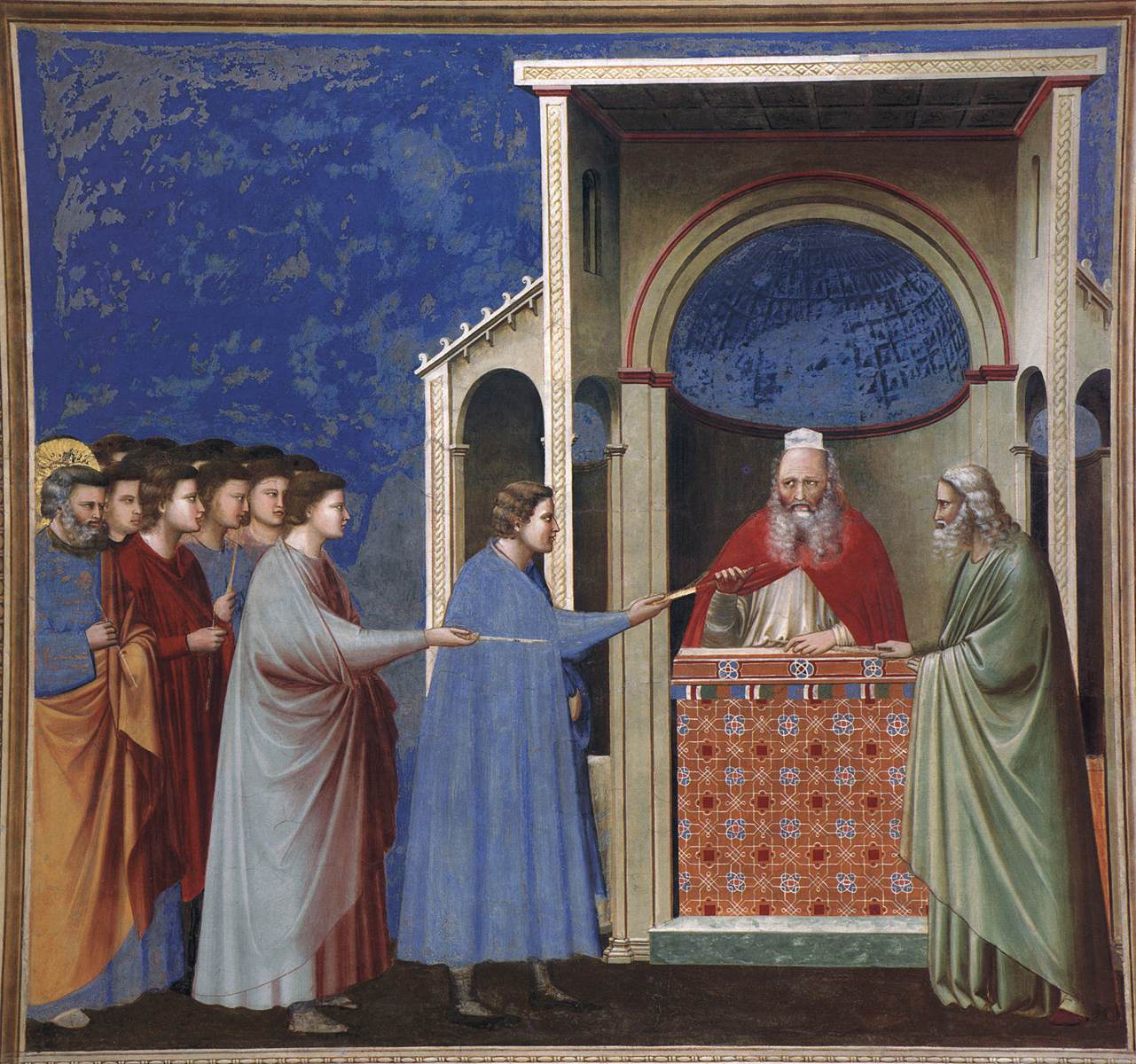Description
Painting No. 9 Scenes from the Life of the Virgin: 3. The Bringing of the Rods to the Temple by the artist Giotto Di Bondone is a masterpiece of Italian Renaissance art. This painting is part of a series of frescoes that Giotto painted in the Scrovegni Chapel in Padua, Italy.
Giotto's artistic style is characterized by its realism and its ability to represent the human figure in a natural and expressive way. In this painting, we can see how the characters are realistically represented, with great attention to detail in their clothing and gestures.
The composition of the painting is very interesting, as Giotto uses the technique of perspective to create depth and give the feeling that the characters are in a real space. In addition, the arrangement of the characters in the painting helps to guide the viewer's gaze towards the center of the scene, where the Virgin Mary is located.
The color used in the painting is very rich and vibrant, with bright, warm tones contrasting with the darker, somber tones of the supporting characters. This helps to highlight the importance of the Virgin Mary in the scene.
The story behind this painting is very interesting, since it represents the moment in which the Virgin Mary and Saint Joachim bring to the church the rods that will be used to choose the husband of Mary. This is a little-known episode from the life of the Virgin Mary, which makes this painting even more fascinating.
In short, the painting No. 9 Scenes from the Life of the Virgin: 3. The Bringing of the Rods to the Temple by Giotto Di Bondone is a masterpiece of Italian Renaissance art, notable for its realistic artistic style, interesting composition , its use of vibrant color and its little-known but fascinating history. This painting is a showcase of Giotto's talent and skill as an artist and is a jewel of Italian artistic heritage.

